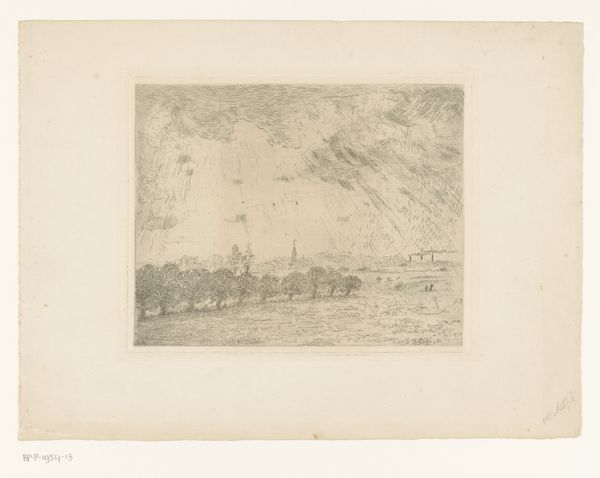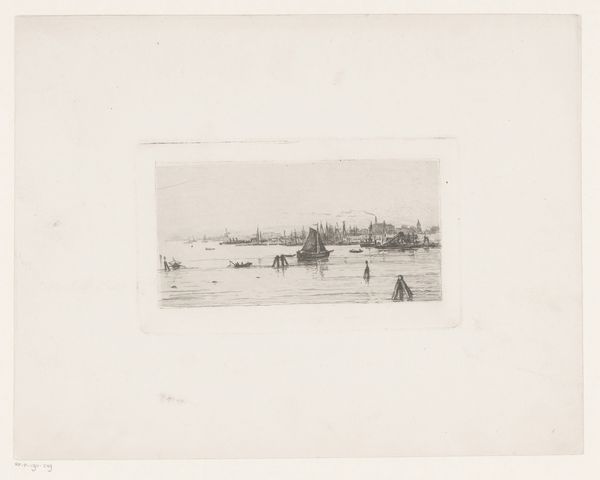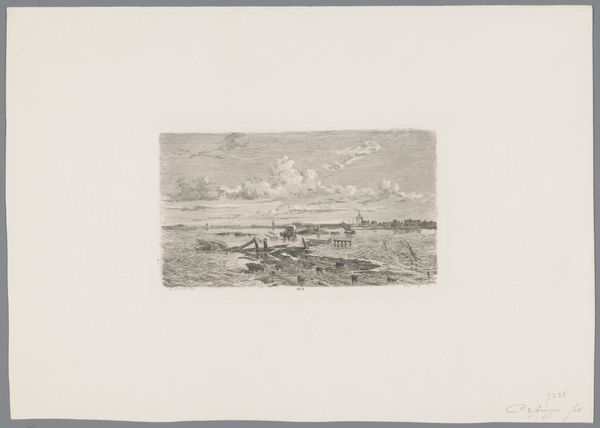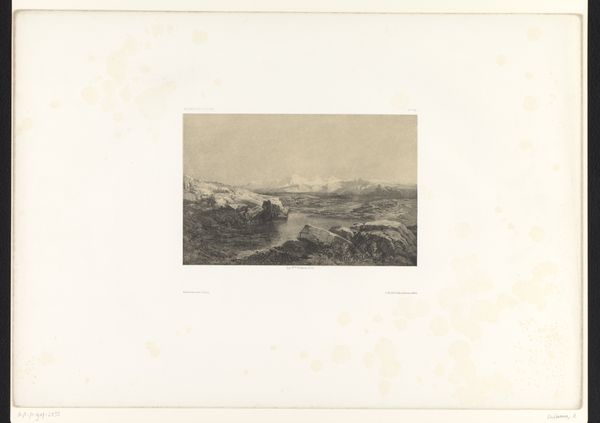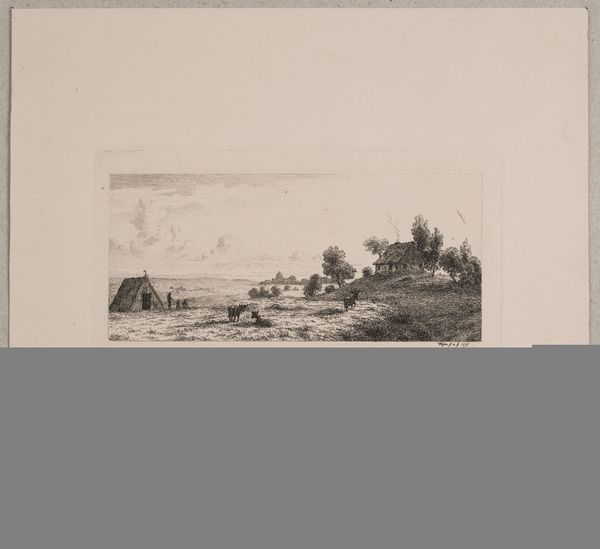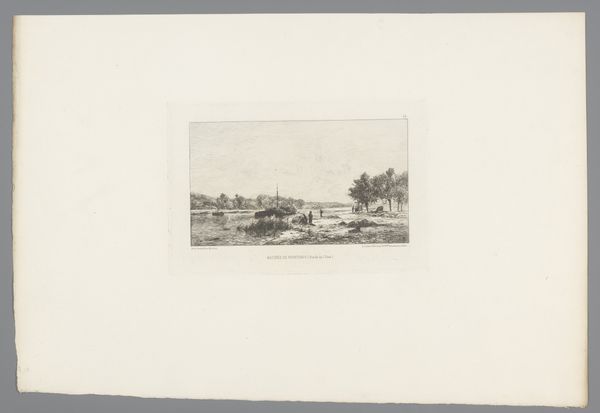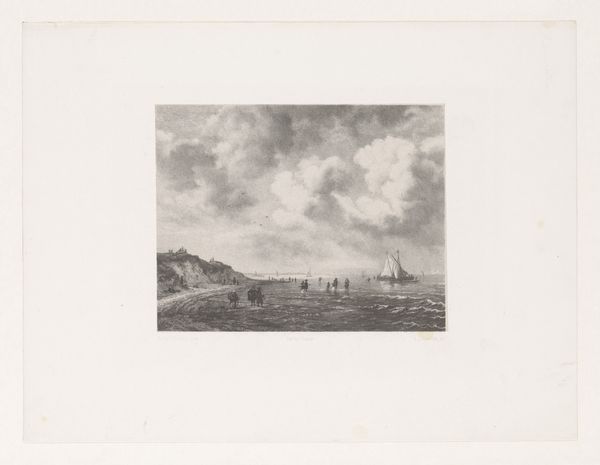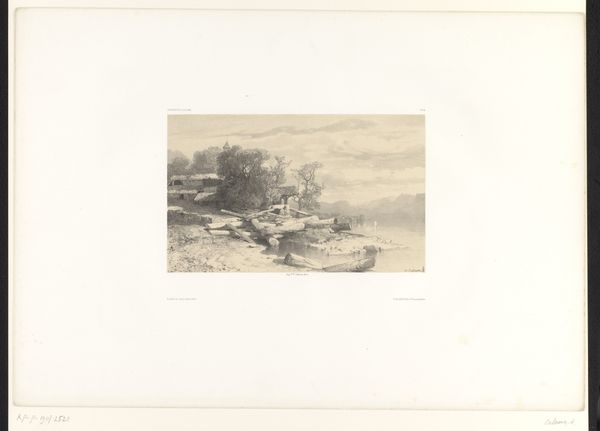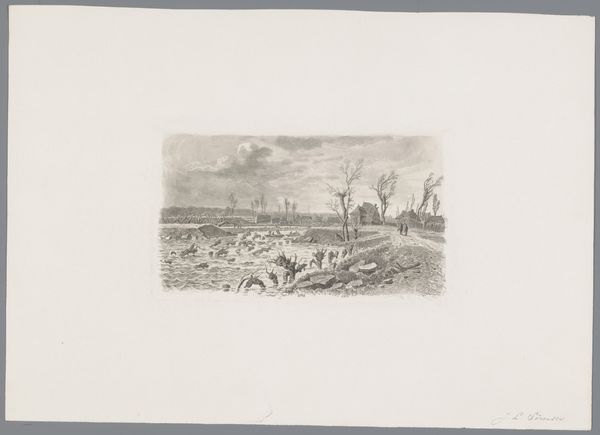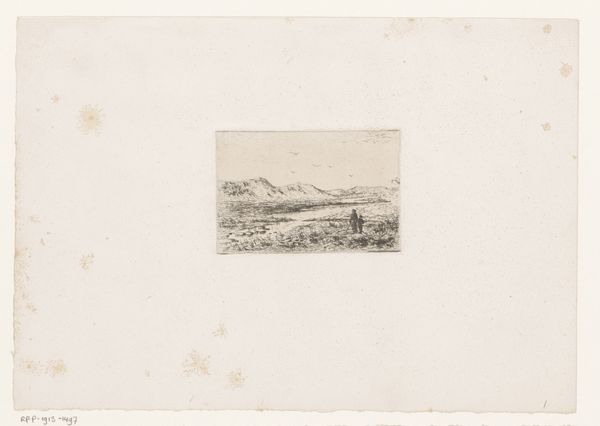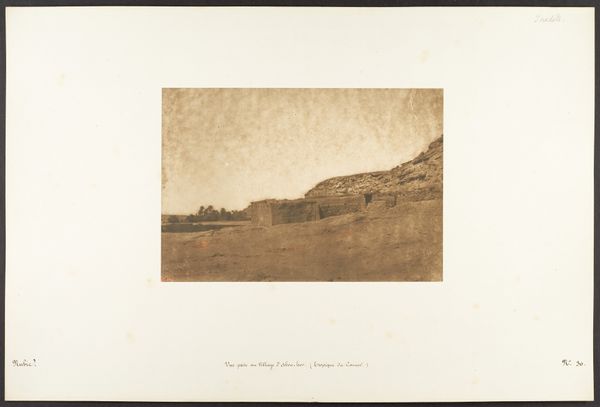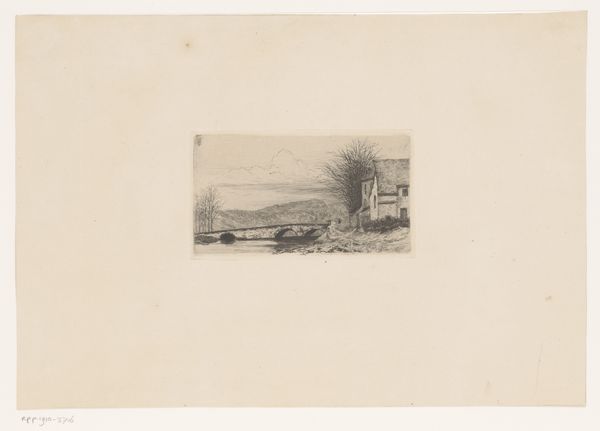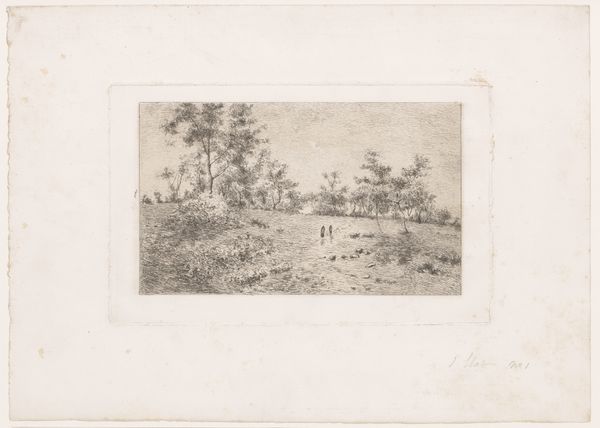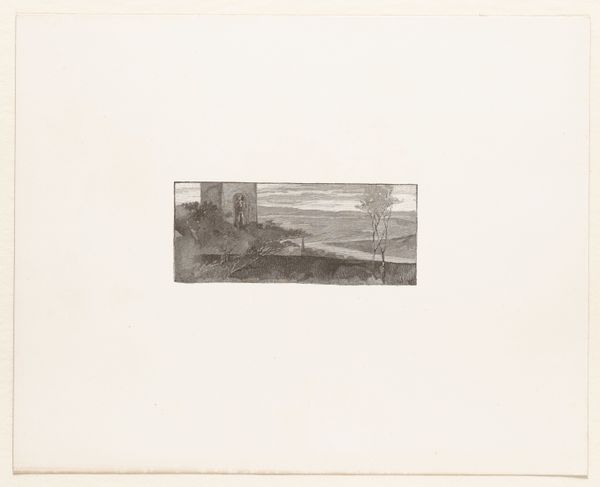
print, etching
#
16_19th-century
# print
#
impressionism
#
etching
#
old engraving style
#
landscape
#
realism
Dimensions: height 195 mm, width 298 mm
Copyright: Rijks Museum: Open Domain
This is a print called 'Grasland en rivier te Vatteville' by Albert Porcher, made sometime in the late 19th century. It’s an etching, a printmaking process that involves biting lines into a metal plate with acid, inking it, and then running it through a press. Look closely, and you can see the dense network of tiny lines that build up the image. This process is crucial to understanding the work's aesthetic. Etching allows for a great deal of detail and tonal variation, and Porcher exploits this to create a rich, atmospheric depiction of the countryside. Yet, the mode of production is also significant. Etching was a well-established technique by this point, associated with the rise of commercial printmaking and the wider art market. Porcher's choice of this medium speaks to the increasing availability and popularity of printed images. The fact that it is reproducible means that the artwork becomes more accessible to consumers, and hence tied to the wider social issues of consumption.
Comments
No comments
Be the first to comment and join the conversation on the ultimate creative platform.
